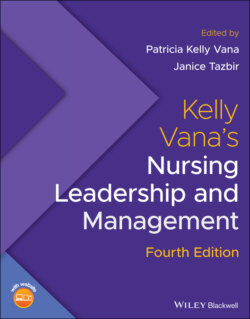Читать книгу Kelly Vana's Nursing Leadership and Management - Группа авторов - Страница 180
The Development of Nursing Research in the 1950s to the 1970s
ОглавлениеEarly nursing research focused on the education of nurses. This was understandable because graduate degrees for nurses had been based on theories of education. But as nursing education started to shift away from hospital‐based schools to colleges and universities, a separate and independent body of nursing knowledge was needed. That is, nursing needed to clarify the scientific knowledge behind nursing practice.
Essential to an independent body of nursing knowledge was the development of independent theories of nursing. In 1959, nurse Dorothy Johnson wrote: “…the question of the existence of a body of substantive knowledge which can be called the science of nursing…is a question of considerable significance for nursing's continued development as a recognized professional discipline” (Johnson, 1959, cited in Tobbell, 2018, p. 65). Historian Dominique Tobbell (2018) has outlined three reasons why theories of nursing were developed during the 1960s and the following decades.
First, most doctorates that nurses had obtained were in education or, to a smaller degree, in the social and behavioral sciences. These disciplines all had their own theoretical orientations.
Second, nursing wanted to show that it was separate from medicine. Thus, nurses did not want to use the biomedical sciences as their theoretical base since they were in use as the base for medical science,
Third, distinctive nursing theories differentiated nursing science from other disciplines.
In 1972, the NLN required that a nursing conceptual model should frame nursing curricula. Within the 1950s, 1960s, and 1970s, many nurse theorists developed theories of nursing science based on a functional view of nursing and health (Im & Chang, 2012). Table 3.2 details several prominent nurse theorists and their work.
Table 3.2 Prominent Nurse Theorists and Their Work
Source: Compiled with information from Nursing Theory at www.nursing-theory.org. Retrieved on October 3, 2019.
| Nurse theorist | Theory | Brief description |
|---|---|---|
| Helen Erickson | Modeling and Role Modeling | Recognizes the unique perspective of each patient; accepts that the patients are experts in their own care. |
| Virginia Henderson | Need Theory | Supports patients to become as independent as possible. |
| Imogene King | Theory of Goal Attainment | Describes a dynamic, interpersonal relationship in which a patient grows and develops to attain certain life goals. |
| Madeleine Leininger | Culture Care Theory | States that Nursing is informed by patient's culture and cultural background. |
| Betty Neuman | Neuman Systems Model | Has a holistic view of patients; patients are seen as people and not merely a pathology. |
| Dorothea E. Orem | Self‐Care Deficit Theory | Helps patients become more independent by recognizing that people want to care for themselves. |
| Hildegard Peplau | Theory of Interpersonal Relations | Describes 7 roles of nursing, which are applied selectively to optimize care. |
| Callista Roy | Adaptation Model of Nursing | Promotes adaptation of patient to health and to illness. |
| Jean Watson | Philosophy and Science of Caring. | Uses caring as a generalized framework for nursing. |
